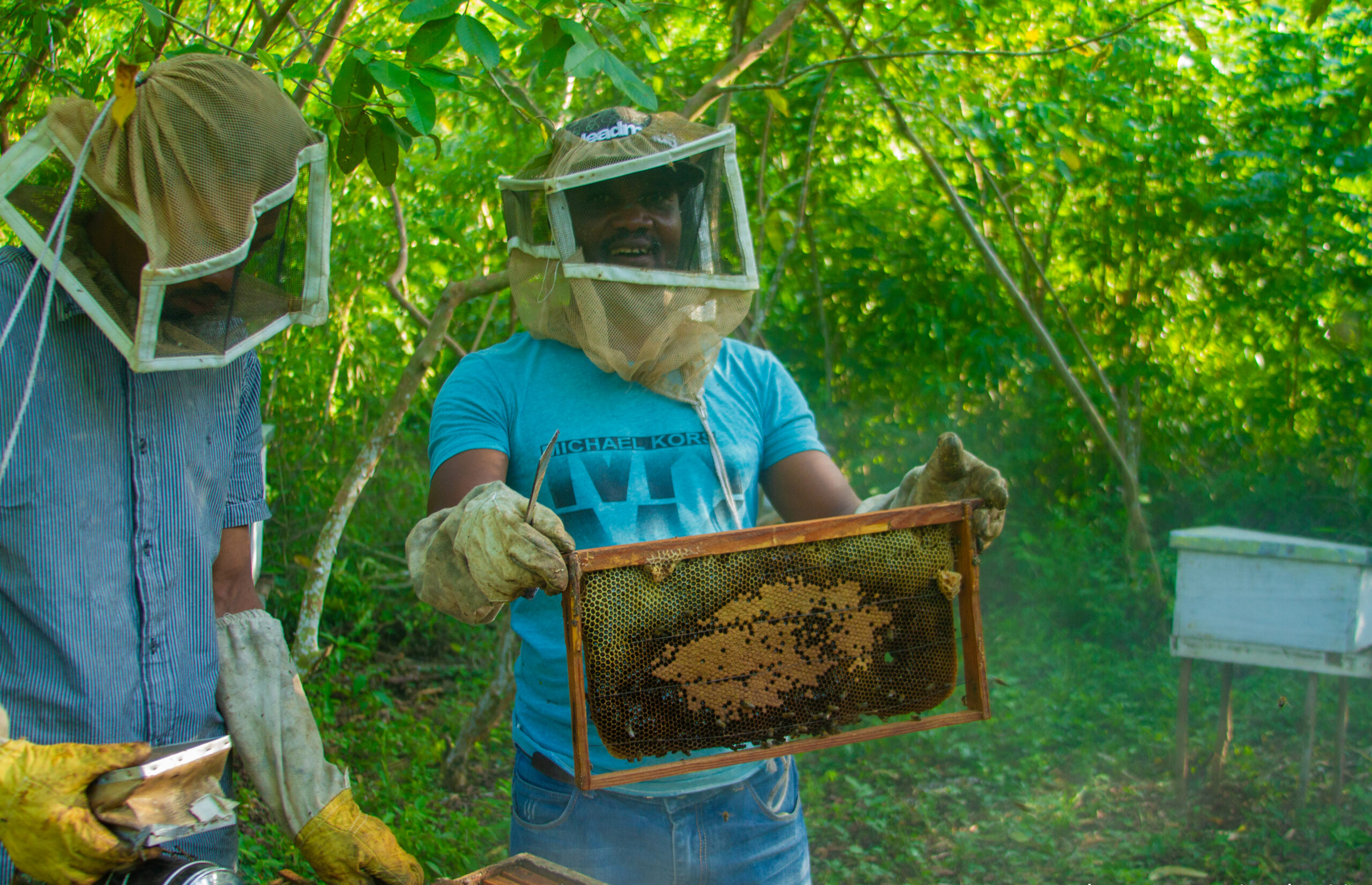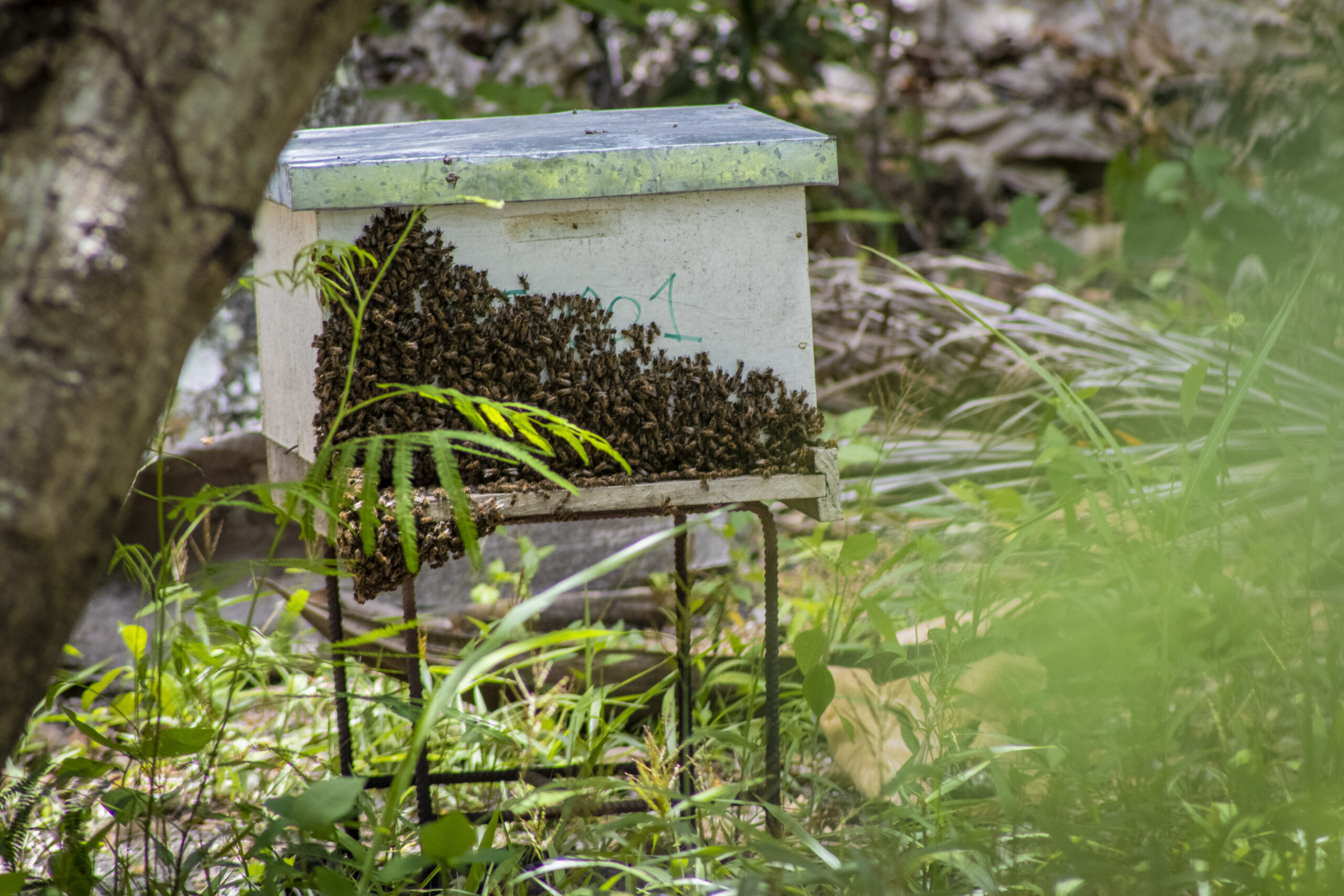Caribbean
Beekeeping at the Heart of Mangrove Revival in Haiti
Words by Darlou Alexandre, MI Americas Communications Officer Haiti.
Innovative initiatives are needed to strengthen the resilience of local communities in Haiti. Malteser International Americas, in collaboration with our local partner, the Haitian American Association of Agricultural, Medical and Engineering Services (AHAAMES), originally launched this project to restore vulnerable coasts in the Nippes department while supporting local populations through sustainable solutions for their future.
This ambitious project encompasses various activities, such as strengthening the fishing sector, reforesting coastal mangrove forests, and beekeeping. Among these initiatives, beekeeping stands out for its sustainable impact. Inhabitants of local communities, notably in Saint Cyr et Lendor, Rivière Salée, and Duplessis, are trained in the art of beekeeping. By helping locals build and install new apiaries (collections of beehives), this program generates a stable income for local families who can go on to sell their bees’ honey each year. Bees play a crucial role in coastal ecosystems by pollinating plants, including mangroves. By promoting the regeneration of mangroves, they contribute directly to the preservation of biodiversity and the ecological restoration of coastal regions.
Kenel Sanosier, one of the participants of the beekeeping project, started out as a novice. However, thanks to the training provided by our local partner, AHAAMES, Kenel has become a true expert in the field of apiculture. He devotes himself wholeheartedly to the upkeep of his apiary, taking the initiative to repair or replace any part of the hives, or to eliminate harmful insects. His apiary, located in Saint Cyr, is today a powerful lever for transforming the environment. Starting out with 15 hives, his is the only apiary to have grown to 24. Kenel proudly observes the positive changes taking place all around him. “Thanks to this project, I’ve been able to make enough money to pay for my children’s schooling, and the people in my community are benefiting from the restoration of the mangroves. In the past, the winds destroyed our crops during cyclones, jeopardizing our livelihoods, but things have greatly improved with the restoration of the mangroves. The fishermen are also seeing an increase in the number of fish,” says Kenel, with a big smile on his face.
The project, funded by the German Federal Ministry for Economic Cooperation and Development (BMZ), is scheduled to end in December 2024. By then, we will have reached 7,185 households, offered sustainable solutions, and strengthened community resilience to climate challenges. Thanks to these initiatives, residents are seeing their future transformed, with more stable livelihoods and revitalized nature available to them and their families.
Haiti is in need of your donations, click here to help.
Malteser International has been active in Haiti since the earthquake in 2010. Initially focusing on emergency aid and reconstruction support, the current emphasis of our work is on providing nutritional assistance to malnourished children and pregnant women; as well as ensuring long-term food security and creating income-generating opportunities, particularly for women.



